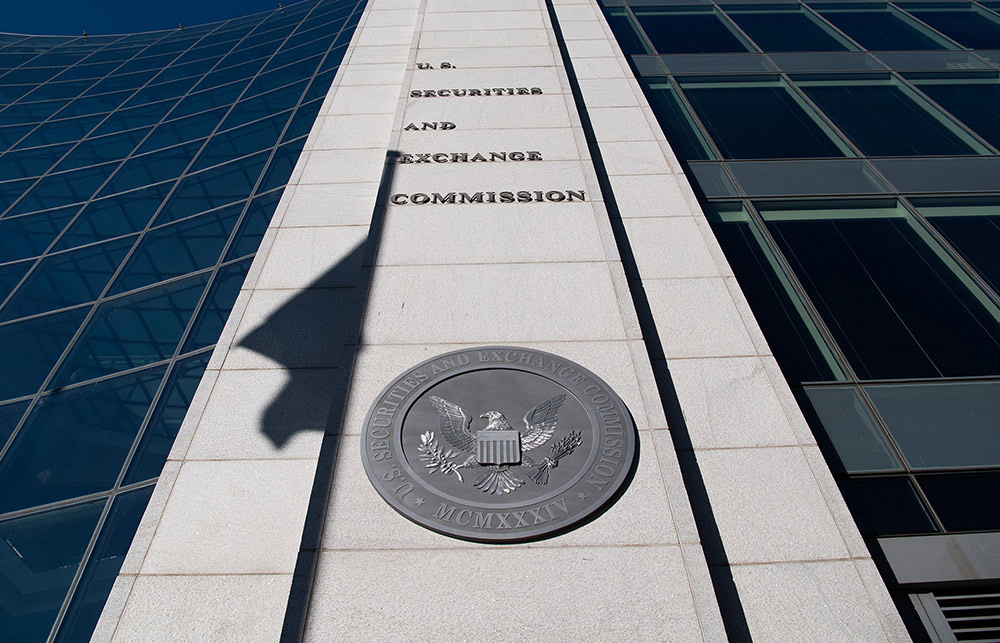
毫无疑问,四大审计公司正在艰难地应对美国投资者对透明度的竞争性需求,并根据中国隐私和证券法履行其义务。美中经济与安全评估委员会(U.S.-China Economic and Security Review Commission)称,长期以来,美国上市公司会计监管委员会(Public Company Accounting Oversight Board)无法获取在美上市中国企业的审计工作底稿,因此有理由对此表示担心,而且目前此类中国企业达到了217家,总市值超过了2万亿美元。
然而,审计透明度是一个波及全球的大问题。
数百家海外审计公司都已经在美国上市公司会计监管委员会的网站上注册。其中英国的审计公司最多,达到了45家,中国39家,加拿大36家,新加坡25家,墨西哥20家,马来西亚18家。尽管美国证券交易委员会(U.S. Securities and Exchange Commission)开始按照最近通过的2020《外国公司担责法案》(Holding Foreign Companies Accountable Act of 2020)采取行动,来解决美国上市公司会计监管委员会注册新兴市场公司的审计操作问题,但我们认为从战略角度来讲,它将把更多的精力放在履行美国证券交易委员会的强制令方面,以保护投资者,维持井然有序的市场,并促进资本形成。
当美国证券交易委员会于1934年成立时,资本市场的全球化水平并没有如今这么高。因此,我们有必要秉承适用于21世纪的全球化思维方式。
我们建议在华盛顿特区之外运营的美国证券交易委员会的国际事务办公室(Office of International Affairs)扩大其活动范围。具体来说,美国证券交易委员会(以及美国上市公司会计监管委员会)应该设立海外分支,并派遣员工前往全球不同的市场,以发现和回应影响美国投资者在海外公司利益的问题。
此举也是在效仿美国国务院(State Department)的模式,成为美国了解整个世界的“眼睛和耳朵”。处于海外的美国证券交易委员会员工应该努力向国务院学习,掌握有关各国及其对美历史关系的特有知识和专长。美国证券交易委员会在一开始可以考虑设立三家海外分支机构:美国证券交易委员会亚太办事处,常驻新加坡或香港;美国证券交易委员会欧洲办事处,常驻英国;美国证券交易委员会拉美办事处,常驻墨西哥城或圣保罗。
美国证券交易委员会能够赋予这些海外机构外交职能,以加强与该区域金融监管方的关系。我们的建议或将帮助美国获得一些至关重要的软实力,从而让美国更加有效地与其他国家进行协商,并最终为美国投资者带来更好的成果。软实力的一个关键特征在于,它是非强制性的,而且软实力的内容包括文化、政治价值和外交政策。
软实力需要与硬实力进行搭配。因此,我们还建议让身处海外的美国证券交易委员会和美国上市公司会计监管委员会分支机构承担对审计公司以及位于该区域且在美国交叉上市的公司进行审核的职责。
此举是否会挑战这些国家的主权地位?的确会。然而,美国证券交易委员会的外交职能有望缓和幕后的一些紧张关系。
当然,终极手段是切断与敌对外国政府的金融外交联系,实际上就是要求此类外国公司从美国交易所退市。美国资本市场是外国公司可以利用的最丰厚、最具流动性的融资场所,因此,在可预见的未来,人们对于接触这一市场的兴趣仍然会延续。
如果美国证券委员会和美国上市公司会计监管委员会希望有效地保障其美国投资者在海外公司的利益,那么就应该立即行动起来,投资扩张其国际印迹。(财富中文网)
希瓦·拉吉戈帕尔是哥伦比亚商学院(Columbia Business School)的冠名教授,亦是杰罗米查山全球商业研究所(Jerome A. Chazen Institute for Global Business)的高级学者。
斯里·拉马莫迪是商业管理学院(School of Business Administration)的副教授,亦是戴顿大学汉利可持续发展研究所(Hanley Sustainability Institute at the University of Dayton)的可持续发展学者。
译者:冯丰
审校:夏林
毫无疑问,四大审计公司正在艰难地应对美国投资者对透明度的竞争性需求,并根据中国隐私和证券法履行其义务。美中经济与安全评估委员会(U.S.-China Economic and Security Review Commission)称,长期以来,美国上市公司会计监管委员会(Public Company Accounting Oversight Board)无法获取在美上市中国企业的审计工作底稿,因此有理由对此表示担心,而且目前此类中国企业达到了217家,总市值超过了2万亿美元。
然而,审计透明度是一个波及全球的大问题。
数百家海外审计公司都已经在美国上市公司会计监管委员会的网站上注册。其中英国的审计公司最多,达到了45家,中国39家,加拿大36家,新加坡25家,墨西哥20家,马来西亚18家。尽管美国证券交易委员会(U.S. Securities and Exchange Commission)开始按照最近通过的2020《外国公司担责法案》(Holding Foreign Companies Accountable Act of 2020)采取行动,来解决美国上市公司会计监管委员会注册新兴市场公司的审计操作问题,但我们认为从战略角度来讲,它将把更多的精力放在履行美国证券交易委员会的强制令方面,以保护投资者,维持井然有序的市场,并促进资本形成。
当美国证券交易委员会于1934年成立时,资本市场的全球化水平并没有如今这么高。因此,我们有必要秉承适用于21世纪的全球化思维方式。
我们建议在华盛顿特区之外运营的美国证券交易委员会的国际事务办公室(Office of International Affairs)扩大其活动范围。具体来说,美国证券交易委员会(以及美国上市公司会计监管委员会)应该设立海外分支,并派遣员工前往全球不同的市场,以发现和回应影响美国投资者在海外公司利益的问题。
此举也是在效仿美国国务院(State Department)的模式,成为美国了解整个世界的“眼睛和耳朵”。处于海外的美国证券交易委员会员工应该努力向国务院学习,掌握有关各国及其对美历史关系的特有知识和专长。美国证券交易委员会在一开始可以考虑设立三家海外分支机构:美国证券交易委员会亚太办事处,常驻新加坡或香港;美国证券交易委员会欧洲办事处,常驻英国;美国证券交易委员会拉美办事处,常驻墨西哥城或圣保罗。
美国证券交易委员会能够赋予这些海外机构外交职能,以加强与该区域金融监管方的关系。我们的建议或将帮助美国获得一些至关重要的软实力,从而让美国更加有效地与其他国家进行协商,并最终为美国投资者带来更好的成果。软实力的一个关键特征在于,它是非强制性的,而且软实力的内容包括文化、政治价值和外交政策。
软实力需要与硬实力进行搭配。因此,我们还建议让身处海外的美国证券交易委员会和美国上市公司会计监管委员会分支机构承担对审计公司以及位于该区域且在美国交叉上市的公司进行审核的职责。
此举是否会挑战这些国家的主权地位?的确会。然而,美国证券交易委员会的外交职能有望缓和幕后的一些紧张关系。
当然,终极手段是切断与敌对外国政府的金融外交联系,实际上就是要求此类外国公司从美国交易所退市。美国资本市场是外国公司可以利用的最丰厚、最具流动性的融资场所,因此,在可预见的未来,人们对于接触这一市场的兴趣仍然会延续。
如果美国证券委员会和美国上市公司会计监管委员会希望有效地保障其美国投资者在海外公司的利益,那么就应该立即行动起来,投资扩张其国际印迹。(财富中文网)
希瓦·拉吉戈帕尔是哥伦比亚商学院(Columbia Business School)的冠名教授,亦是杰罗米查山全球商业研究所(Jerome A. Chazen Institute for Global Business)的高级学者。
斯里·拉马莫迪是商业管理学院(School of Business Administration)的副教授,亦是戴顿大学汉利可持续发展研究所(Hanley Sustainability Institute at the University of Dayton)的可持续发展学者。
译者:冯丰
审校:夏林
It’s no secret that the Big Four audit firms are struggling to deal with competing demands for transparency from U.S. investors and to meet their obligations under Chinese privacy and securities laws. The Public Company Accounting Oversight Board (PCAOB) is rightly concerned about its long-standing inability to access the working papers of audits of Chinese companies listed on U.S. stock exchanges, with 217 such companies exceeding $2 trillion of combined market cap, according to the U.S.-China Economic and Security Review Commission.
But the issue of auditing transparency is a larger concern that extends across the globe.
Hundreds of overseas audit firms are registered on the PCAOB’s website. The United Kingdom has the most audit firms with 45, followed by 39 in China, 36 in Canada, 25 in Singapore, 20 in Mexico, and 18 in Malaysia. While the U.S. Securities and Exchange Commission (SEC) is beginning to take action, under the recently passed Holding Foreign Companies Accountable Act of 2020, to address issues with the auditing practices of PCAOB-registered firms in emerging markets, including China, we think a more strategic focus is warranted to fulfill the SEC’s mandate to protect investors, maintain orderly markets, and facilitate capital formation.
Capital markets were not as globalized as they are today when the SEC was established in 1934. A global approach, suitable for the 21st century, is necessary.
We propose an expansion of the activities of the SEC’s Office of International Affairs (OIA) that operates out of Washington, D.C. Specifically, the SEC (and the PCAOB) should set up foreign missions with staff deployed in different markets around the world to identify and respond to issues impacting the interests of American investors in overseas companies.
This would follow the State Department’s model of being America’s “eyes and ears” to the world at large. Overseas SEC staff should strive to achieve the State Department’s unique knowledge and expertise about different countries and their historical relationship with the U.S. The SEC could consider three overseas missions as a start: SEC–Asia Pacific, based in Singapore or Hong Kong; SEC-Europe, based in the United Kingdom; and SEC–Latin America, based in Mexico City or São Paulo.
The SEC could charge these overseas missions with diplomatic objectives to foster and nurture better relations with financial regulators in the region. Our proposal would help the U.S. gain some soft power that could be crucial in making negotiations with other countries more effective and ultimately lead to better outcomes for American investors. A defining feature of soft power is that it is noncoercive, and the currency of soft power includes culture, political values, and foreign policies.
Soft power needs to be complemented with hard power. Therefore, we would also recommend tasking the overseas SEC and PCAOB missions with local inspections of audit firms and of companies based in the region and cross-listed in the U.S.
Will this pose sovereignty challenges from these countries? For sure. But the SEC’s diplomacy wing would hopefully smooth some of these tensions behind the scenes.
The nuclear option, of course, is to sever financial diplomatic connections with hostile foreign governments, effectively asking such foreign companies to delist from U.S. stock exchanges. U.S. capital markets represent the deepest, most liquid avenues for foreign companies to tap into, so there will remain continued interest in accessing them for the foreseeable future.
It is time for the SEC and the PCAOB to invest in expanding their international footprint if they want to effectively safeguard the interests of American investors in overseas companies.
Shiva Rajgopal is the Kester and Byrnes professor at Columbia Business School and a senior scholar at the Jerome A. Chazen Institute for Global Business.
Sri Ramamoorti is an associate professor in the School of Business Administration and a sustainability scholar affiliated with the Hanley Sustainability Institute at the University of Dayton.






